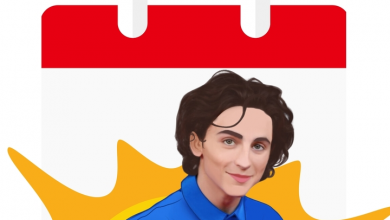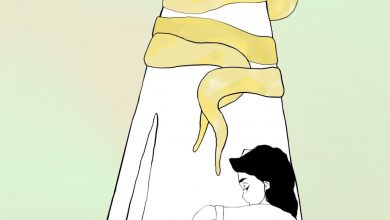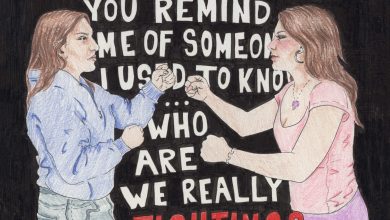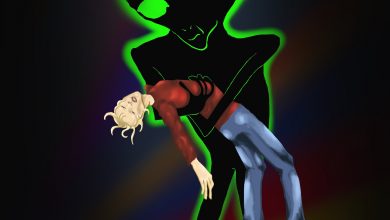Left in the Dark: A Call for Positive Bisexual Representation
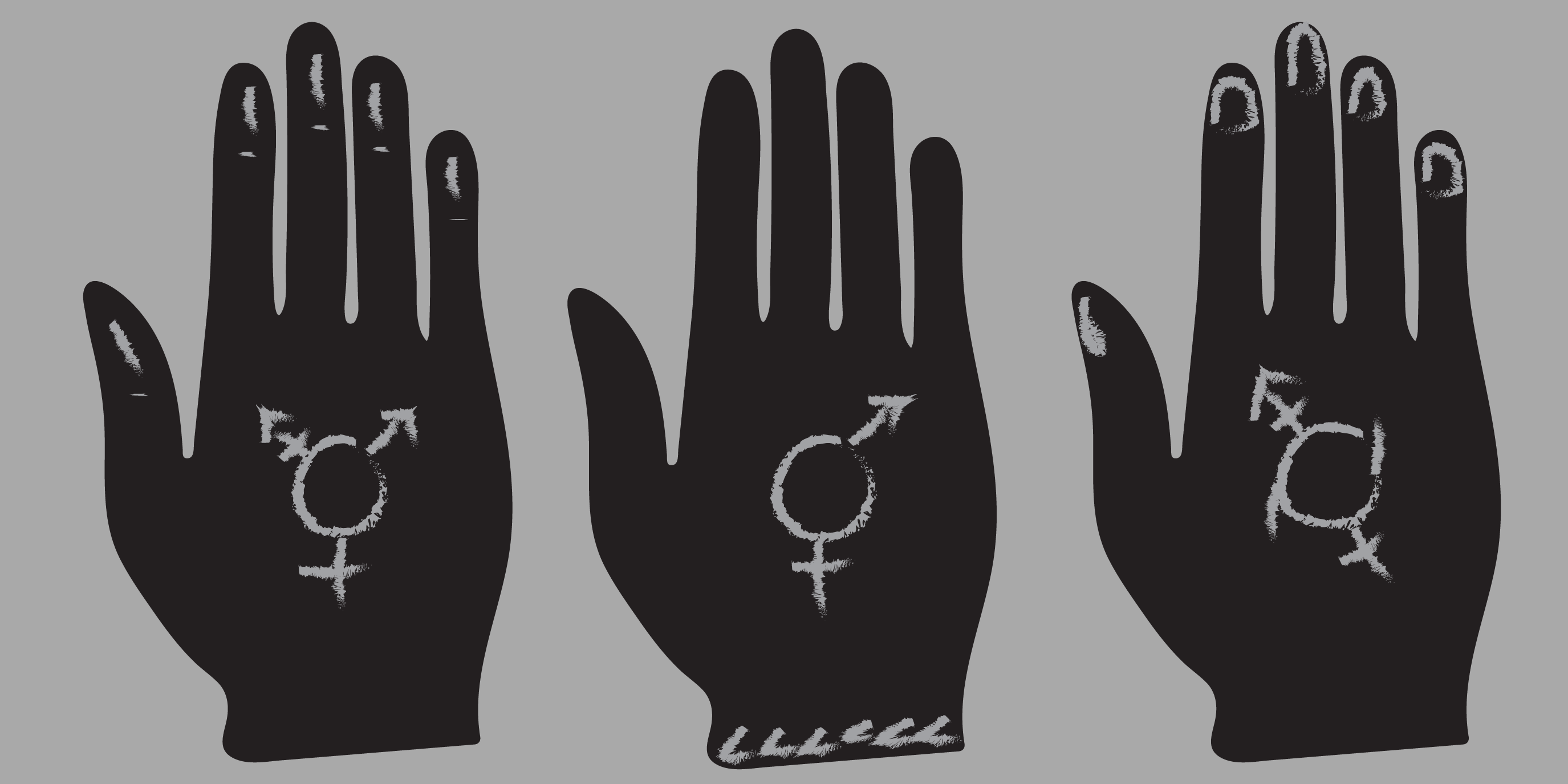
Illustration by Maddy Pease.
I am a queer, cis female who has only been in romantic relationships with heterosexual, cis men. To most, this is seen as synonymous with being a heterosexual, cis female. Too often, those around me take my observable sexual preferences or romantic relationships and choose to label me according to their base assumptions.
The opportunities and my willingness to combat these assumptions are few and far between; the label bisexual feels foreign on my tongue. At the same time, the bi-erasure I experience both within my intimate relationships and more broadly in my life feels piercing.
I’ve known I was queer since I was 15, yet I have always shied away from any label or confrontation of these feelings. I have been searching for validation for these feelings, not because of internal doubt, but because of a belief that I need to meet external expectations. Even as I write these words, I feel a degree of insecurity of my credibility writing on the topic. I have only come close to a romantic interaction with a girl, but it got stunted before it could blossom into anything. What could I have to say about being anything other than heterosexual?
In this internalized criticism of my sexuality lies the problem. My sexuality is not defined by my actions as much as it is by my natural and most personal feelings. The attraction is there, as is the desire; I am certain of the fact that I am not heterosexual.
“Are you sure?” “How do you know if you’ve never been with a girl?” “You’re probably just curious.” All lines I’ve heard from people who question my sexuality. We don’t tend to question the validity of someone’s heterosexuality when they haven’t had a single romantic or sexual encounter in their entire lives. It is when one decides to break from heteronormativity that questions start to arise.
Worse yet: “That’s hot.” “Does this mean you’re down to have a threesome?” “Let’s find a girl for the both of us.” The fetishization of female-to-female attraction and sexuality nearly angers me more than the question of its credibility, but worst is the complete dismissal of the existence of any identity lying in the spectrum between heterosexual and homosexual.
Bisexual erasure is pervasive throughout our heteronormative culture, and it also seeps into my most personal relationships. In my relationships, my sexuality is either discredited or fetishized, with past boyfriends feeling no threat from my attraction towards other females but rather curiosity and excitement. At times, with friends, the fact that I am queer tends to slip from people’s minds until it is overtly addressed. Coming from a moderately conservative Mexican family means my sexuality isn’t something I can openly address with family members either.
To this day I have felt incredibly ill-equipped and isolated in my experience as a queer woman. These microaggressions aren’t independently very damaging, but coupled with the lack of “real” bisexual representation in media and a strong outreach from a bisexual community, I am left flailing for direction on how to navigate my discredited identity.
Representation is a large part of the power dynamic in our heteronormative society. Without examples to look up to, I have often suppressed or hidden my true feelings. Columnist Eliel Cruz sums it up best when confronting the lack of bisexual representation on TV, explaining how “media portrayals of minority groups help the general public acknowledge, relate to and humanize a group they might not interact with in their day-to-day lives.”
Mainstream media has made leaps and bounds in recent years in regards to giving LGBTQ folk both visibility and platforms. GLAAD’s most recent reporting on the percentage of LGBTQ characters in the three major forms of scripted programming includes 28% characters identified as bisexual. This is incredible progress and worth noting; also worth noting is the increase in queer women telling these stories.
However, there are tropes that continue to be perpetuated despite the increased visibility. GLAAD’s report addresses this issue, highlighting the labeling of bisexuals as untrustworthy, manipulative, self-destructive; the list goes on. Bisexual folk are almost exclusively portrayed either as sexual deviants or mysterious unicorns who exist merely in fantasies or in a strange middle ground of sexuality waiting to land in the hetero- or homosexual camp.
Individuals need to confront the reality that sexuality lies on a spectrum, and no single person’s identity along it is invalid. Asexual, pansexual, bisexual and everything in between – all sexual identities are valid, real, and need to be respected. Media needs to go further than suppression or fetishization of these identities.
I am constantly working to understand my own sexuality, and that is not something I need to explain or defend. Yet it is important for these experiences and stories to be shared, for all of those who too often feel like they are completely alone in what they are feeling. The unicorn trope needs to end; bisexuals are human beings and our identities are just as valid as every hetero- and homosexual’s.

